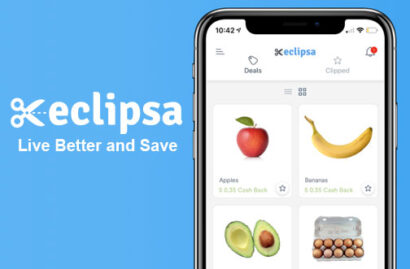
Whether you are ordering coupons to be mailed to your house, signing up for a free sample or entering a contest – it is all done courtesy of the world wide web!
And as with any online activities there are some precautions you should take to keep your private information safe. Here are a few pointers on staying safe while couponing!

Get a New Email Address
Your email address is the number one piece of information that is required when signing up for online deals. The more things you sign up for, the more emails you are going to get to your inbox. We STRONGLY recommend getting a free email address (from Hotmail, Gmail, Yahoo etc) before signing up for anything.
When you start to sign up for multiple coupon sites, freebie offers, newsletters and contests your inbox is soon going to be over-flowing! To avoid swamping the email address you use for day to day things, only sign up for coupon related offers using your new email address.

Get a New Password
As safe as we try to be out there, there is always the potential of being compromised – your email address gets hacked, your computer gets a virus etc. Many viruses out there now target banking and personal information on your PC. It is highly advisable that when you sign up for coupon offers and freebies that you do not use the same password that you use for online banking or any important websites. You should also use something totally absurd but something you will remember. Look around the room you are in right now if you are in need of inspiration.
Number – letter, small letter & caps combinations are best for passwords. We also recommend using the same NEW password for all of your freebie and coupon related sign ups. This will make it easier to remember than having 20 million different passwords!

If It’s Too Good To Be True, It Probably Is
Enough said. If a website says they are giving away $100 Costco cards to everyone who signs up for their page – I wouldn’t believe it. If you suspect a coupon, freebie or offer is just to amazing to believe don’t sign up for. You are most likely getting phished (using your information for an information database later to be sold or used to send you more bogus information).

Look For Important Details Before Giving Any Of Yours
When visiting a website for the first time there are a few things to look for. These will help you in deciding if the site is legitimate or not.
Brand Name You Know – If this offer is for a product you have never heard of before, it’s probably a fake. Try searching on Google for the product name. Look for an official company website, where it can be purchased and pictures of it. You should be able to easily locate all of this information. If you can’t – don’t sign up.
Privacy Policy – Every legit website should have a Privacy Policy. You can normally find this information at the bottom of the webpage. If there is no Privacy Policy – beware. The purpose of this policy is to clarify what is done with any personal information you enter on the site. If they do not specify that your information will not be given to third parties – get out of there. This is how you wind up with loads of junk mail!
Terms of Use – This is similar to a privacy policy. It is not always present but any large company should have it on their website. Like a Privacy Policy it will most likely be found at the bottom of the website.
Content – Does the website look basic and unfinished? Is there nothing but a sample offer? Click around on a website if you suspect it to be fake. Look for information that clearly states what the product is, where is can be purchased, what it’s use is, and any other products or information. If there is nothing else to this offer but one page, it is probably not good news.
Contact Information – Every company should have some form of contact information on it’s website. Look for a phone number, store address & email. I’m wary of sites that offer no contact information other than a form on their website. For verification, try calling the phone number or Googling the store address and see what you come up with.
All that being said, some people are VERY good at making something fake look real. If something just doesn’t feel right trust your gut.

Only Give As Much Information As Necessary
When filling out a registration form for a coupon, freebie or contest you should only ever give out as much information as necessary. Most forms will denote mandatory information by highlighting the field or putting a star beside the fields they require. Only give out as much information as they require. This will save you time and will stop any excess information from being available should it fall into the wrong hands.

Don’t Ever Publicly Post Your Private Info
Another one that is clear as it says. Do NOT ever post your mailing address, telephone number, email address or any other private information publicly. That means on Facebook, on a blog site, on a forum or on a company website. You never know who is lurking around and may see that information. No coupon, freebie or contest will ever require you to make that information public knowledge. If you are unsure of how to apply for a sample or coupon – ask via email or a comment or on a Facebook wall.
Posting “I want a freebie. Please mail it to …….” will not get you your sample. There will always be a form (or email address) to send your information in!

Beware of Pop-Up Offers
The pesky pop-up offer. These are the ones that somehow magically open all on their own after filling out a form or visiting a webpage. 9 times out of 10 these offers are fake or require you to sign up for something else or even pay (GASP!). Avoiding sites that have these pop-up offers is best. If you do visit a site with these pop-ups, I would recommend closing them up as soon as they open. It may say free but in the fine print you will usually see something along the lines of “when you sign up for”, or “when you pay”.

Never Give Your Credit Card Information For Something Free
A true freebie or sample will not ask you to pay anything. If a site asks for your credit card information in exchange for something “free”, don’t do it! Even if they say your card will not be charged, there is something suspicious going on.
This however does not include offers where you are required to pay for shipping & handling. Quite often companies will offer new members a free product to try but you will be required to pay for shipping. If this is something you are considering, be sure to look for the key things above (privacy policy, terms of use etc). If you are still hesitant, try searching for more information to see if others have gotten their items before giving up your information.
As I said above, some people are really good at making a scam look real. Although these tips will help you avoid the majority of them, there may still be a few that slip through undetected. If you ever see something you are not sure of, listen to your gut and don’t do it. No freebie is ever worth sacrificing your identity!
© Copyright SaveaLoonie.com. All rights reserved.




